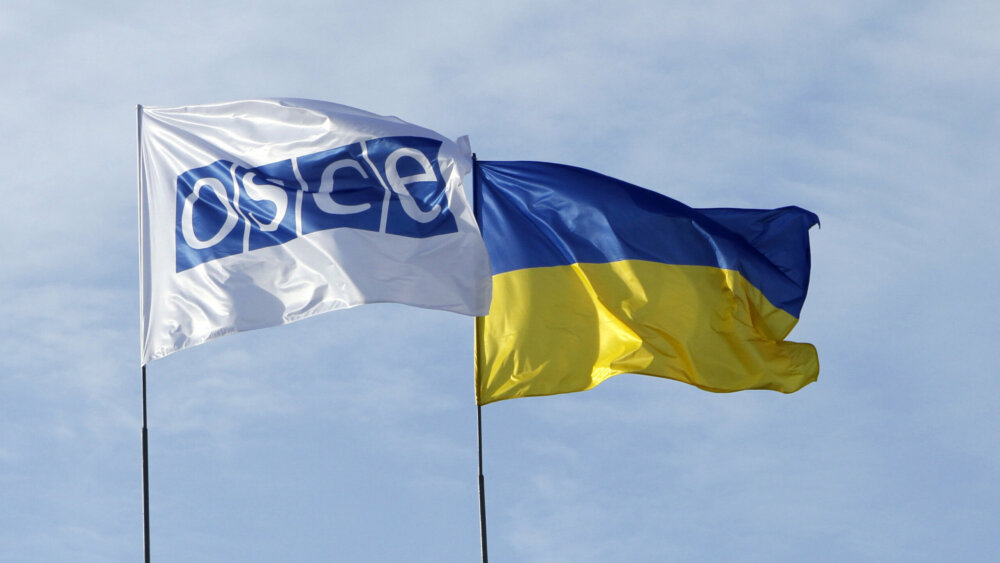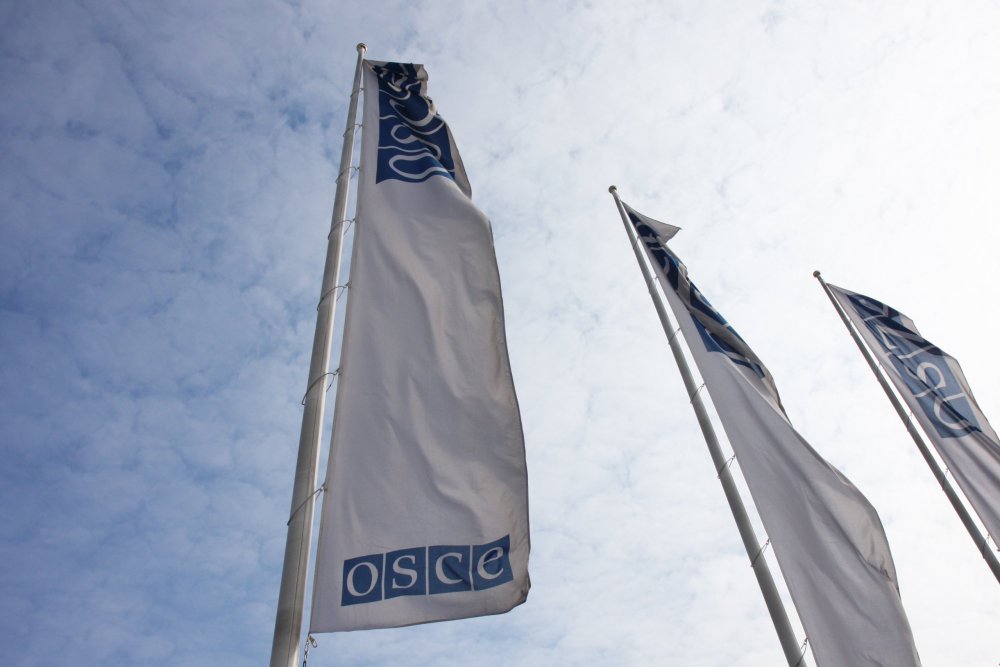Normandy Summit discusses expanding mandate of OSCE monitors in Ukraine
The leaders of France, Germany, Russia and Ukraine met in Paris on 9 December in the so-called Normandy Format in an attempt to inject fresh political impetus into ending the armed conflict in eastern Ukraine, which has killed more than 13,000 people since its outbreak in 2014.
It was the first such meeting since 2016 and all sides considered it an achievement to have met after a three-year hiatus. It was also the first time that Ukrainian President Volodymyr Zelensky, who took office in May 2019, and Russian President Vladimir Putin held a face-to-face meeting.
Asked about their meeting by a reporter, Zelenskiy replied: “I don’t know who (beat) who. I think it would be appropriate to be diplomatic as we’ve just started talking. Let’s say for now it’s a draw.”
In fact, Zelensky was under intense pressure at home not to cross red lines. Multiple “no to capitulation” rallies were held in Ukraine in the run-up to the summit meeting.
“We have made progress on disengagement, prisoner exchanges, ceasefire and a political evolution,” French President Emmanuel Macron said at the final news conference. “We have asked our ministers in the coming four months to work on this.”
According to a final communique released after the talks, the sides expressed commitment to implementing a full ceasefire before the end of the year, working on further demining activities, conducting a prisoner exchange, and opening up new crossing points along the line of contact “based primarily on humanitarian criteria”.
Furthermore, the sides committed to “support an agreement within the Trilateral Contact Group on three additional disengagement areas, with the aim of disengaging forces and equipment by the end of March 2020”.
Normandy leaders also recalled in their final communique that the OSCE Special Monitoring Mission (SMM) to Ukraine should “have safe and secure access throughout Ukraine in order to fully implement its mandate”.
In addition, Zelenskiy and Putin discussed the issue of the transit of Russian natural gas across Ukraine. The gas transit contract ends on 31 December 2019, an issue that is also of concern to the EU as many EU countries rely on supply with Russian gas that is transited across Ukraine.
Expanding the mandate of SMM
Furthermore, Normandy leaders noted the need to expand the mandate of the OSCE SMM to Ukraine to 24/7 monitoring. German Chancellor Angela Merkel said during the final press conference that this was necessary in order to “improve the monitoring of the ceasefire”. Zelenskiy also spoke of the “necessity of increasing the mandate of the OSCE SMM in order to provide monitoring 24/7”.
A decision to expand the SMM mandate to 24/7 (including night-time) patrolling will have “significant operational, human and financial consequences”, according to one high-level OSCE official in Vienna. The official also noted that patrolling during the night would pose “a security risk” to the “unarmed, civilian OSCE monitors”. These aspects would have to be discussed before any changes can be made to the SMM mandate, the official added.
The latest Trilateral Contact Group meeting, held in Minsk on 18 December, discussed how to implement and facilitate the decisions by Normandy leaders. However, the issue of the expansion of the SMM mandate was not discussed, at least according to the press statement that was released after the talks.
Yet, one well-informed source told the SHR Monitor that Ukraine will soon formally request the OSCE to strengthen the SMM’s night-time capabilities, in terms of manpower and technical means.
Main political questions remain unresolved
Despite the concrete steps forward, leaders in Paris could not reach any breakthrough on the main questions to settle the conflict. This also became obvious during the final press conference that followed the roughly nine hours of talks.
Ukrainian President Volodymyr Zelensky and Russian President Vladimir Putin expressed fundamentally divergent positions on the issue of returning border control and on the question of local elections.
“We have totally opposing views with the Russian Federation president,” Zelenskiy said, adding: “For now we are not in agreement […]. We’re not talking about a summit in four months for nothing. I think we are obliged to find a solution otherwise we cannot move forward.”
President Putin said: “On the border, we have totally divergent positions.” Putin also talked about the necessity of “introducing amendments to the constitution of the country and fixing the special status of Donbas on an ongoing basis”.
Indeed, the sides have been at odds about the sequencing of steps laid out in the Minsk Agreements. Kyiv wants a list of security aspects to be implemented as a precondition for allowing local elections in Donbas and for making changes to Ukraine’s constitution. The security aspects mainly pertain to control over its border with Russia, but also include a full implementation of the ceasefire and withdrawal of foreign troops and weapons. Moscow, for its part, demands more political concessions from Ukraine, such as constitutional reform and holding of local elections, before agreeing to any of the afore-mentioned security aspects.
Different interpretations
In an attempt to break this deadlock, the so-called Steinmeier Formula – named after former German foreign minister who proposed it – was devised in 2015. Concretely, the formula suggests holding elections in the separatist-held territories in accordance with Ukrainian legislation and under the monitoring activities of the OSCE. On election day, a temporary special status law will be enacted and if the OSCE concludes that the elections have been free and fair, that same law can be enforced permanently, according to the formula.
Ukraine singed up to the Steinmeier formula at a meeting of the OSCE Trilateral Contact Group on 1 October, which was a Russian precondition for the convening of the Normandy Summit.
Yet, the summit in Paris showed that Ukraine and Russia still have different ways of interpreting the Steinmeier Formula, given their divergent statements at the press conference.
In their final communique, Normandy leaders nevertheless considered it “necessary to incorporate the “Steinmeier formula” into the Ukrainian legislation, in accordance with the version agreed upon within the N4 and the Trilateral Contact Group”.
This means that the formula is still on the table but that the thorny questions were left for future talks, particularly the issue of working towards local elections.
Leaders will take them up in four months’ time when another Normandy Summit is scheduled to take place.



Comments
* Your email address will not be published